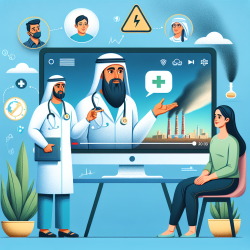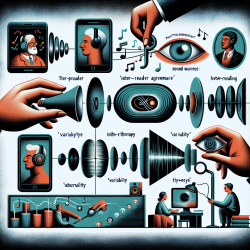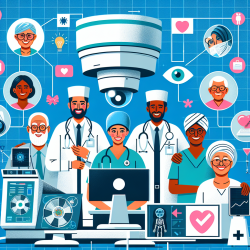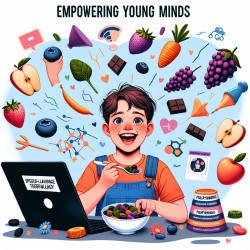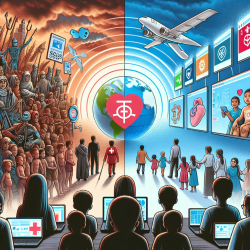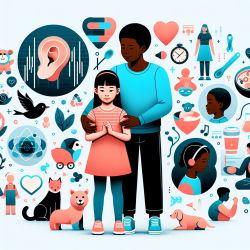Introduction
In the ever-evolving field of healthcare, staying informed and improving patient outcomes are paramount. A recent study titled "Short animated video increases knowledge and perceived comfort in clinical counseling on inequitable health impacts of air pollution among interprofessional health learners and clinicians" highlights a novel approach to enhance clinical counseling skills. This research underscores the power of a simple two-minute animated video in transforming the knowledge and confidence of healthcare professionals.
The Power of Animation in Education
The study, conducted among Minnesota-based interprofessional health learners and clinicians, reveals that a short, animated video can significantly improve knowledge about the health impacts of air pollution. It also boosts the perceived comfort in identifying and counseling at-risk patients. This finding is particularly relevant for those in speech language pathology and other healthcare professions where effective communication is crucial.
Key Findings from the Research
- Increased Knowledge: Participants showed a significant improvement in their understanding of the health impacts of air pollution.
- Enhanced Comfort: The video increased clinicians' comfort in identifying high-risk patients and counseling them on preventive health behaviors.
- Altered Misconceptions: Misperceptions about air pollution's health impacts were effectively changed.
- Widespread Acceptance: The video was well-received, with many participants expressing a desire for more such educational tools.
Implications for Practitioners
For practitioners, especially those involved in online therapy services like TinyEYE, these findings are a call to action. Integrating short, animated educational videos into your practice could enhance your ability to counsel patients effectively. Here’s how you can implement these insights:
- Adopt Video-Based Learning: Consider incorporating short, animated videos into your patient education toolkit. These can be used during virtual therapy sessions or shared with patients for self-learning.
- Focus on Environmental Health: Expand your counseling topics to include environmental health risks, such as air pollution, which are often overlooked but have significant health implications.
- Encourage Further Learning: Use these videos as a springboard for deeper discussions with patients, encouraging them to explore preventive health behaviors.
Overcoming Barriers
Despite the positive outcomes, the study identified barriers such as limited time during clinical encounters and a need for more training. To overcome these challenges, practitioners can:
- Utilize Technology: Leverage technology to deliver educational content efficiently. Videos can be shared via patient portals or during telehealth consultations.
- Seek Professional Development: Engage in continuous learning to stay updated on environmental health issues and effective counseling techniques.
Conclusion
The research highlights the potential of short, animated videos as a powerful educational tool for healthcare professionals. By adopting this approach, practitioners can enhance their counseling skills, leading to better patient outcomes. As we strive for excellence in patient care, let’s embrace innovative methods that empower us to make informed, data-driven decisions.
To read the original research paper, please follow this link: Short animated video increases knowledge and perceived comfort in clinical counseling on inequitable health impacts of air pollution among interprofessional health learners and clinicians.
